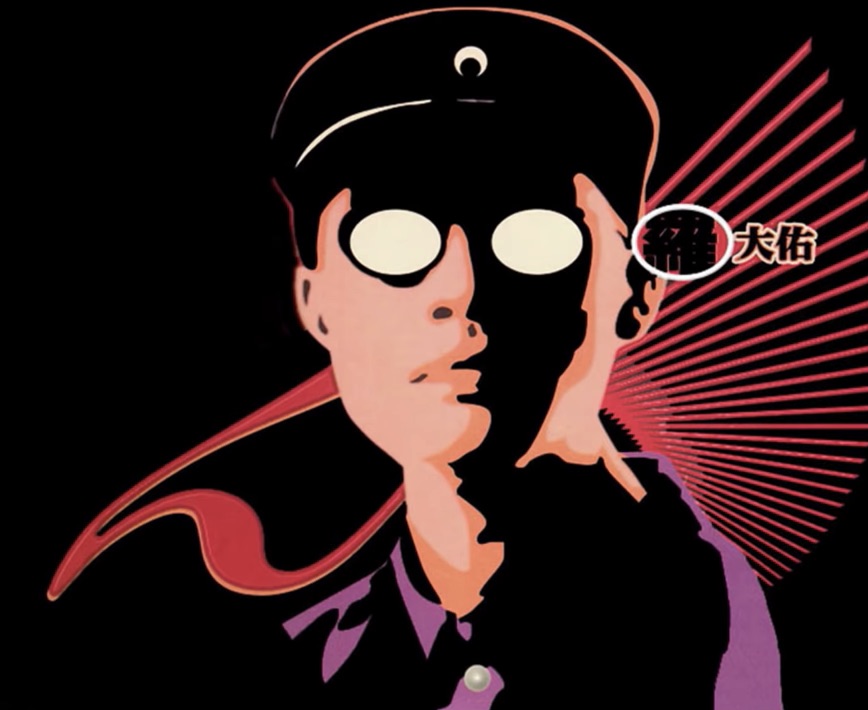Friday Song: Lo Ta-yu seeks Hong Kong’s roots in ‘Pearl of the Orient’

In 1986, Lo Ta-yu (罗大佑 Luō Dàyòu), a Taiwanese singer-songwriter and a cultural icon in Mandopop, went to Hong Kong and wrote a song called “Pearl of the Orient,” Hong Kong’s nickname. In the lyrics, he called Hong Kong his lover and admired the city’s splendor and “romantic demeanor.” More importantly, he sympathized with the city’s suffering under colonial rule and traced its cultural roots to China.
Let the sea breeze blow for 5,000 years
As if every teardrop speaks to your dignity
Let the waves accompany me to protect you
Please never forget my unwavering yellow face
“Five thousand years” ties Hong Kong’s history to China’s. The “unwavering yellow face” reminds Hong Kong people of their shared ethnicity with those on the mainland. As a 2004 study from National Cheng Kung University in Taiwan pointed out, throughout Lo’s music career, he has always tried to build bridges across the Chinese diaspora via music, emphasizing common cultural roots.
In a 2004 interview, Lo said: “Cultural identity is important…without roots, people float…for a nation that has survived for thousands of years, it has its own reasons. I travel across mainland China, Hong Kong, and Taiwan. It seems I’m wandering around, but in fact, I’m seeking my roots. I feel relaxed and fulfilled.”
“Pearl of the Orient” was born at a unique time. While producing cinematic music in Hong Kong, Lo remembered the late 1980s and early 1990s was “an era with special meaning,” a time when the city was wracked with uncertainty and anxiety before the 1997 handover from Great Britain.
Natalia S.H. Chan (洛楓 Luò Fēng), a Hong Kong poet and cultural critic, wrote about the widespread anxiety and dispiritedness in her book City at the End of the Century: Hong Kong’s Popular Culture (世紀末城市:香港的流行文化):
In the process of “termination” and “return,” the vast majority of Hong Kong people lost their grip of political decisions. Nor were they certain of their personal future. The “history” failed to bring hope to this city; instead, it pushed it towards the nostalgia of the past.
Three decades later, Lo’s “Pearl of the Orient” still resonates with many Hong Kongers questioning the city’s future. In 2014, Lo sang “Pearl of the Orient” at a music festival in support of the Occupy Central movement. “I wish Hong Kong success in its pursuit of democracy,” he said.
This June, as Hong Kong’s anti-extradition protests intensified, the now 64-year-old singer again expressed his concern about the city’s future. “Hong Kong is a fast-paced city, which makes many think they should finish things as soon as possible,” he said at his concert in Taipei. “But this is something you just can’t rush.”
Lyrics:
Pearl of the Orient 东方之珠
小河弯弯向南流
A winding river flows to the south
流到香江去看一看
Flows to Hong Kong to take a look
东方之珠我的爱人
Pearl of the Orient, my lover
你的风采是否浪漫依然
Is your elegance romantic as ever?
月儿弯弯的海港
Crescent moon harbor
夜色深深灯火闪亮
The night is dark, the lights are bright
东方之珠整夜未眠
Pearl of the Orient, stay up all night
守着沧海桑田变幻的诺言
Keep the promise despite the vicissitudes of life
让海风吹拂了五千年
Let the sea breeze blow for 5,000 years
每一滴泪珠彷彿都说出你的尊严
As if every teardrop speaks to your dignity
让海潮伴我来保佑你
Let the waves accompany me to protect you
请别忘记我永远不变黄色的脸
Please never forget my unwavering yellow face
船儿弯弯入海港
A boat meanders into the harbor
回头望望沧海茫茫
Turn around, look at the vast and hazy sea
东方之珠拥抱着我
The Pearl of the Orient is embracing me
让我温暖你那苍凉的胸膛
Let me warm up your cold chest
Friday Song is SupChina’s weekly sign-off. Let us know what you thought of the week that was in the comments below, or email editors@thechinaproject.com.





